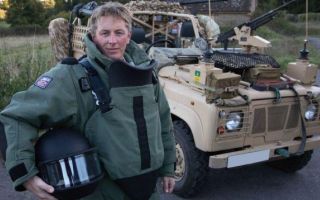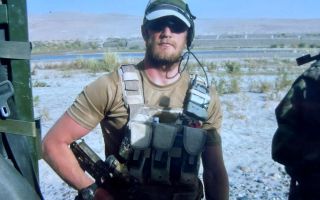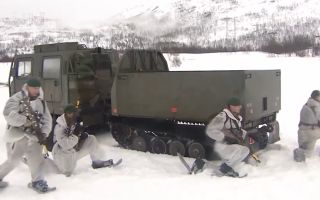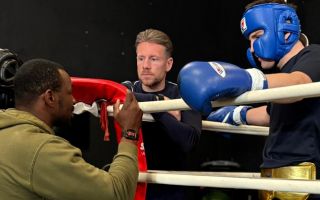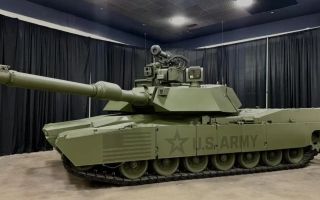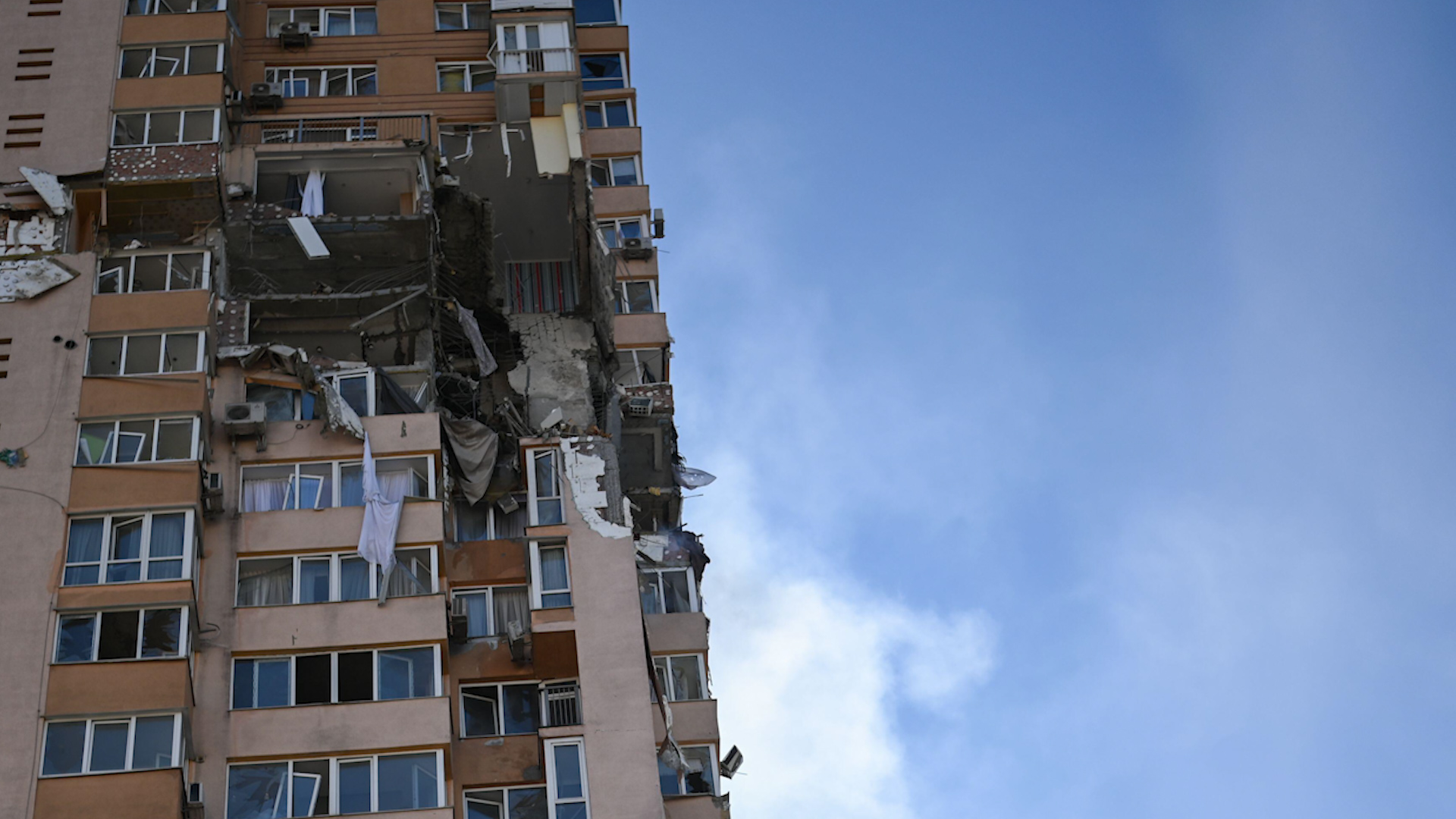
Battle for Kyiv: Russian troops push toward Ukraine's capital

Russian troops closed in on Ukraine's capital on Saturday after a night of explosions and street fighting sent Kyiv residents seeking shelter or fleeing the city.
The country's leader claimed Ukraine's forces had repulsed the assault and vowed to keep up the struggle.
"The real fighting for Kyiv is ongoing," President Volodymyr Zelensky said in a video message, accusing Russia in a video message of hitting infrastructure and civilian targets.
- Russia's attack is strung out and behind schedule, Defence Secretary says
- Urban warfare: The 'combat in hell' on Ukraine's streets
- Ukraine invites foreign volunteers to combat invading Russian forces
The UK Ministry of Defence placed the bulk of Russian forces almost 19 miles from central Kyiv in an intelligence posted on Saturday morning, Armed Forces Minister James Heappey telling Forces News the fighting in the capital had been confined to "very isolated pockets" of Russian special forces and paratroopers.
As Russian troops pressed their offensive with small groups of troops reported inside Kyiv, the city's mayor, Vitali Klitschko, extended an overnight curfew to run from 17:00 on Saturday until 08:00 on Monday.
Russia claims its assault on Ukraine was aimed only at military targets, but bridges, schools and residential neighbourhoods have been hit since the invasion began on Thursday with air and missile strikes and Russian troops entering Ukraine from the north, east and south.
Ukraine's health minister reported on Saturday that 198 people, including three children, have been killed and more than 1,000 others have been wounded, although it was unclear whether the figure included both military and civilian casualties.
In Kyiv, a missile struck a high-rise apartment building in the south-western outskirts near one of Kyiv's two passenger airports, leaving a jagged hole of ravaged apartments over several floors.
Watch: Armed Forces Minister James Heappey spoke to Forces News on Saturday morning.
UN officials said more than 120,000 Ukrainians have left the country for Poland, Moldova and other neighbouring nations.
Western governments claimed stiff Ukrainian resistance had slowed the Russian advance, and Russia does not yet control Ukraine's skies.
Later on Saturday, a similar intelligence update from the MOD stated that the temporary slowing of Russia’s advance was "likely as a result of acute logistical difficulties and strong Ukrainian resistance".
It went on to state: "Russian forces are bypassing major Ukrainian population centres while leaving forces to encircle and isolate them.
"Overnight clashes in Kyiv are likely to have involved limited numbers of pre-positioned Russian sabotage groups.
"The capture of Kyiv remains Russia's primary military objective."
In addition to Kyiv, the Russian assault appeared to focus on Ukraine's coastline, stretching from the Black Sea port of Odesa, in the west near the border with Romania, to the Azov Sea port of Mariupol in the east.
If the Russian troops succeed, Ukraine will be cut off from access to all of its sea ports, which are vital for its economy.
Mr Zelensky issued a defiant video recorded on a downtown Kyiv street early on Saturday, saying he remained in the city and that claims the Ukrainian military would put down arms were false.
"We aren't going to lay down weapons. We will protect the country," the Ukrainian president said. "Our weapon is our truth, and our truth is that it's our land, our country, our children. And we will defend all of that."
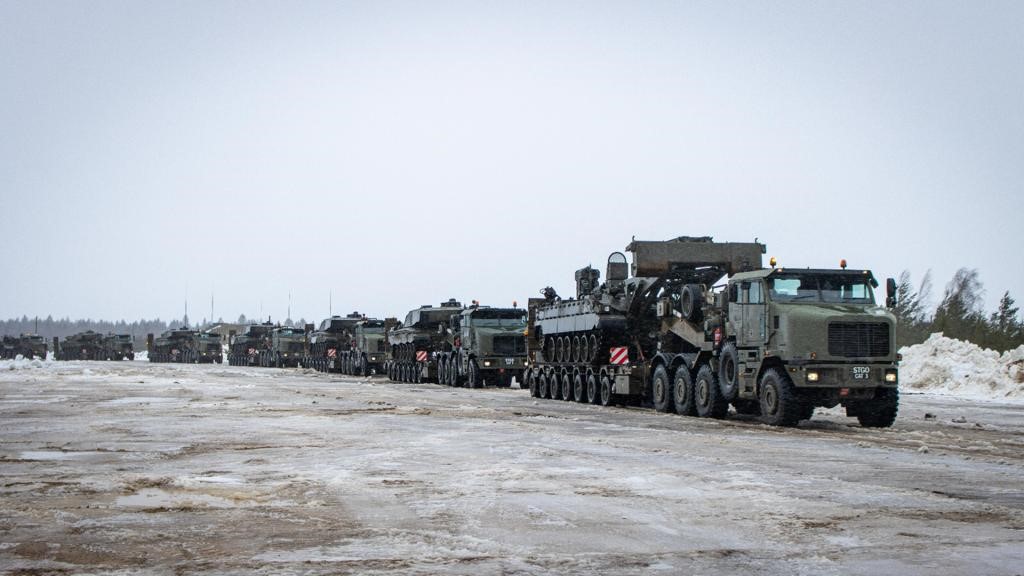
City officials in Kyiv urged residents to seek shelter, to stay away from windows, and to take precautions to avoid flying debris or bullets.
NATO allies have sent weapons and other aid to Ukraine, which is not a member of the alliance, and Mr Heappey said the UK is planning more deliveries to ensure weapons such as the NLAW anti-tank missile launcher do not end up in the hands of the Russians.
NATO member nations also have beefed up their troops in allied countries in eastern Europe but ruled out deploying troops to fight Russia in Ukraine.
Dmitry Medvedev, the deputy head of Russia’s Security Council, warned that Moscow could react to recent sanctions by opting out of the last remaining nuclear arms pact, freezing Western assets and cutting diplomatic ties with nations in the West.
"There is no particular need in maintaining diplomatic relations," Mr Medvedev said. "We may look at each other in binoculars and gunsights."

